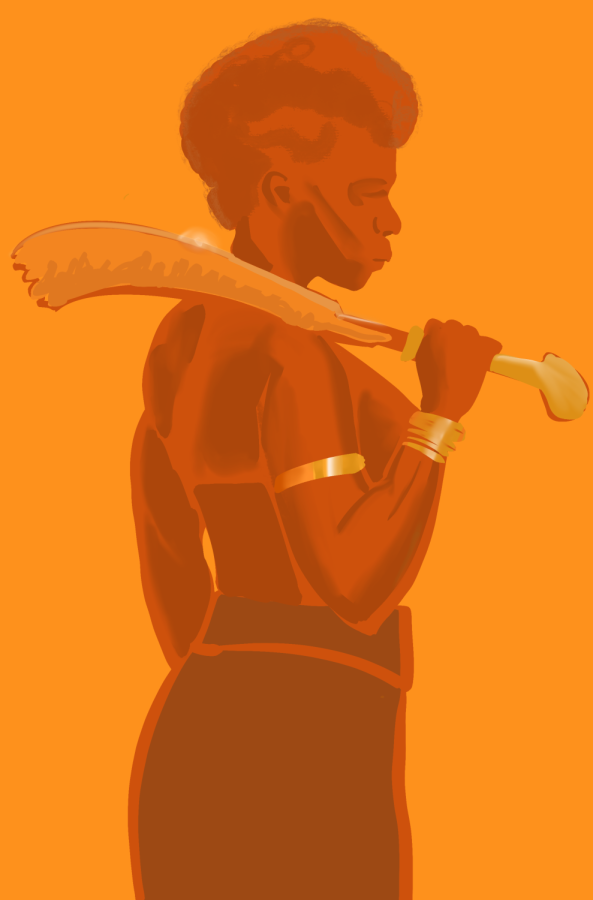‘The Woman King’ is a Historical Provocation Made for the Big Screen
After an opening weekend replete with all the indications of success—$19 million at the box office, 1.4 million viewers and an A+ CinemaScore—“The Woman King” was received with an eagerness unique to films that do something new. Directed by Gina Prince-Bythewood, the film loosely grounds itself in the true story of an all-female battalion known as the Agojie, the guardians of the Dahomey Kingdom.
After an intoned preamble—it’s 1823 in West Africa—the movie kicks off with a stirring combat scene charged with the dexterity and vigor of Agojie technique. The battle is less to grab attention, though it does that quite well, then to immediately center Bythewood’s most refined character: Nanisca, the Agojie leader dynamically played by Viola Davis. The visceral, intimately shot and paradoxically inviting sequence catalyzes the singular energy of the Agojie; the film’s raison d’etre.
Returning to Dahomey after easily beating their pathetic male competition, the Agojie battalion is rightfully venerated by the kingdom’s civilians, who collectively part and avert their gaze as the women pass. Behind the Agojie trails a line of enslaved people stolen in battle. Thus, the central tensions of the film begin to rise.
Dahomey is under the thumb of the wealthy, western-influenced Oyo Empire and forced to pay tribute in guns, women, captives and resources. While both the Dahomey Kingdom and the Oyo Empire sell enslaved peoples to Europeans, the Oyo Empire is deeply enmeshed in the machinations of the Trans-Atlantic slave trade. Dahomey, meanwhile, is portrayed as a reluctant accomplice to the mass trafficking of human beings.
Nanisca quickly proves her virtue off the battlefield as she implores the young King Ghezo, played by John Boyega, to stop dealing with the Europeans in captured people and instead trade in palm oil. Nanisca’s vision, to establish a Dahomey empire firmly against the slave trade and devoted to all Africans who migrate into its borders, is perhaps the most intriguing thread of the movie. Yet it quickly fades into the background to make way for Nawi, a boisterous teenager played by Thuso Mbedu, who’s dropped at the palace gates by her father.
Though Mbedu performs tactfully, Nawi is a recognizable contrivance that drags the film through an extended—at worst derivative and cluttered—montage delineating her ascension to the heights of Agojie warriorship. Unfortunately, Nawi, never quite attaining a believable depth, fails to grow apart from the screen and become real despite Mbedu’s potent skill. When the script wallows in platitudes and various subplots distract, the intricate setting and sheer cinematic craftsmanship prove sufficiently interesting.
While “The Woman King” continues to reap great commercial success and glowing appraisals, some social media pundits have incited a sizable amount of public indignation over the film’s “based on a true story” claim. The objections are mostly concentrated on Twitter under the maxim #BoycottWomenKing.
“Time to Boycott the Woman King movie. The film is about the Dahomey & Benin [modern day Dahomey] that traded slaves into the transatlantic,” Tweeted Emmy nominated producer Antonio Moor. “This may be the most offensive film to Black Americans in 40-50 years.”
Another user added, “Let’s be honest here folk. It’s a movie about a[n] African tribe famous for selling slaves to Europeans that was made into a female empowerment story by two White women writers [Dana Stevens and Maria Bello]. You don’t have to be very ‘woke’ to get the problem here. #BoycottWomanKing.”
These contestations could be dismissed as the unsolicited opinions of Twitter denizens, but the dissidents do voice the unfulfilling way “The Woman King” engages with Dahomey’s lengthy involvement in the European slave trade.
Yet, #BoycottWomanKing partisans ironically miss the vast absence of reliable scholarship about the Dahomey people and the Agojie battalion, in addition to the fundamental reasons for making a movie like “The Woman King.”
“I don’t think you should ever fabricate the truth,” Prince Bythewood told the Los Angeles Times. “What we are showing is authenticity in who these women were and what the society was. We are dealing with things that were beautiful about the kingdom and things that they were needing to correct. It is a little tough given this is the first film focusing on Black women in these positions of power and beauty and grandeur and royalty, and it’s not lost on me that there will be those that would actually denigrate this or try to bring this down.”
“The Woman King,” neither a documentary nor advertised as one, centers and celebrates the true agents of Dahomey’s history in a cinematic idiom. Crucially, the film poses a beautifully rendered challenge to the popular historical narrative that magnifies white enslavers and colonial actors.
“It’s our story,” Davis told the Reuters news outlet. “There is no white savior in the movie. There’s none. We save ourselves.”


